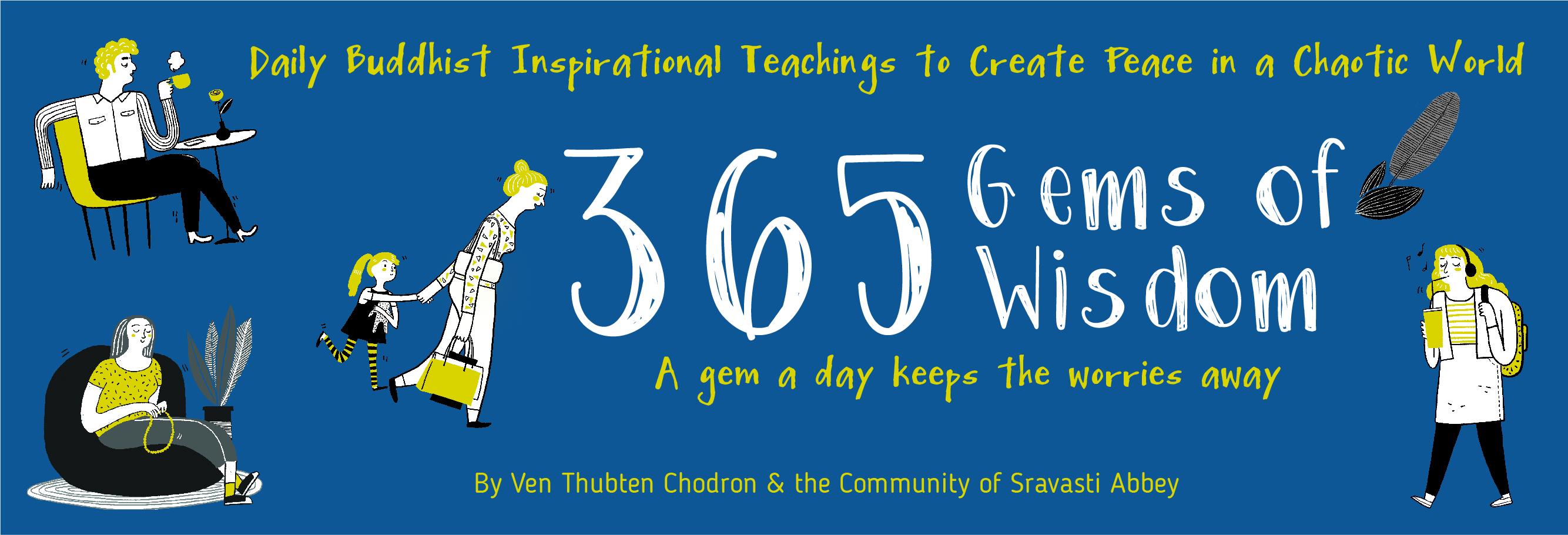November 27 : Eating with Gratitude
At the Abbey, we say: “I contemplate all the causes and conditions and the kindness of others by which I have received this food.” The original Chinese version does not include “the kindness of others”. It was added because it becomes very obvious when you eat, that food comes from others. Benefactors provide our food at the Abbey, but even as a layperson you are dependent on others for your food. It is planted, harvested, processed, and transported by others. Even if the food comes from our garden, we usually have to buy the seeds and have others help us take care of it. People who eat meat particularly should have a sense of gratitude for the beings that gave their whole lives for their breakfast, lunch, or dinner.
Thinking about causes and conditions can include thinking about the karma that we created so we now have food that can be offered to the Three Jewels. In developed countries, we tend to take the presence of food on the table for granted, which should not be the case. It depends on many causes and conditions in this lifetime, like transportation, easy access to food, and the absence of war. It also depends on our having created the causes to receive the food through previous acts of generosity like sharing food with others. Thinking like this helps us reflect on whether we are being generous in our current life and creating the causes to have food and drink in the future.
“I contemplate my own practice, constantly trying to improve it”: We choose to focus on the purpose of the line, which is getting us to improve our practice. We need to ask ourselves if we are keeping our precepts well and upholding our part of the bargain with our donors who offer us food. Along this line, the Pali canon talks about four groups of people who receive the requisites of food, shelter, clothing, and medicine. Those who do not keep their precepts well yet receive offerings are like thieves, getting what is not theirs. Those who keep their precepts but do not yet have realisations are like debtors taking out a loan so that they can eventually gain realisations. Stream enterers, once-returners, and non-returners are those who partake of their inheritance because they have not yet achieved liberation 464 | November November | 465 but it is in sight because of their realisation of emptiness. Arhats, Buddhas, and eighth, ninth, and tenth-level Bodhisattvas eat the food like owners because they have completed the path and are entirely worthy of the food.
“365 Gems of Wisdom” e-book is out now!

